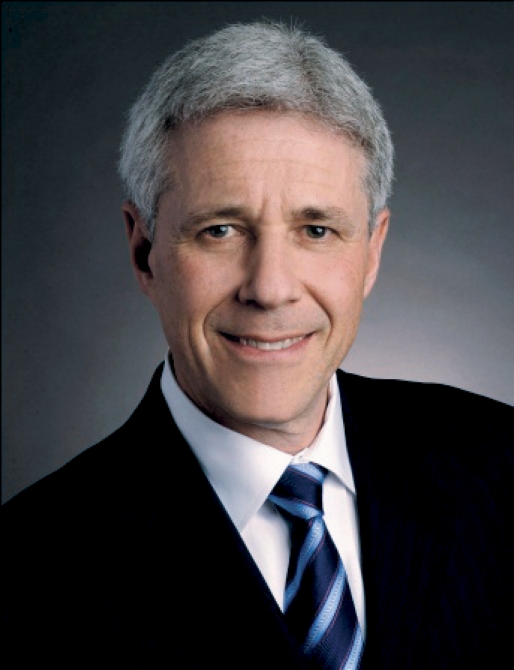
“Make good choices.” This sage advice was offered by my wife, Gail, each and every time any of our sons, Daniel, Noah, or Seth, ventured out during their formative years. As their parents, we hoped we had prepared them well to make the right decisions. But what are the principles one depends upon in order to decide what the good or right choice is? This is as necessary for an individual to understand as it is for a family, a community, a country, or an organization such as ours.
As the voice of family medicine in Canada, the College of Family Physicians of Canada (CFPC) must make the good or right choices that address the priority health needs of Canadians in the current economic climate, especially with the pending renegotiation of the Health Accord in 2014.
I believe that social responsibility and accountability should be among the main principles informing our decisions, consistent with our mission of striving “to improve the health of Canadians by promoting high standards of medical education and care in family practice, by contributing to public understanding of healthful living, by supporting ready access to family physician services, and by encouraging research and knowledge about family medicine.”1
Why should medicine be socially accountable? Is there a social contract between medicine and society? Most physicians agree we have a moral responsibility that goes beyond reward or legal liability—a responsibility that we make decisions that improve our patients’ health and well-being. We are accountable for what we do. For many of us, too, our responsibility extends to our communities, regions, and country. To be human is to be social. Each of us is part of a larger collective—in our case, the CFPC. As part of this collective, we contribute to the “common good,” which recognizes that collective well-being is inseparable from individual well-being.2
Awareness of the social responsibility of medicine is not new. Since 1995, when the World Health Organization published the seminal paper on the social accountability of medical schools,3 Health Canada, the Association of Faculties of Medicine of Canada, the Royal College, and others have supported the necessity of incorporating this concept into medical training. As well, authors like Charles Boelen and Robert Woollard have published extensively on the topic, contributing to the literature that now demands that we educate socially responsible physicians.
Many events in life are beyond our control, but we can target many aspects of life that contribute to the health and well-being of our population: poverty, gender and diversity inequities, educational and cultural barriers, and inequities of access. These are social justice issues we can do something about. By introducing social justice in our medical curricula we increase students’ social awareness and assist them in learning about resolving these issues—and thus about becoming socially responsible. By advocating for the family doctors who care for these Canadians, by developing and supporting continuing education, initiatives, research, and policies that facilitate access to excellent primary care for all, we become socially accountable.4
The CFPC has made many choices that address issues of social justice. Our CanMEDS–FM framework for family medicine training includes the key role of family medicine health advocate and being “responsible to societal needs.” The new Triple C Competency-based Curriculum for family medicine residency training also addresses accountability to society, social responsibility, and patient safety.
Medicine’s social accountability also comes through in the Future of Medical Education project, a work in progress in partnership with the Association of Faculties of Medicine of Canada, the Royal College, and the Collège des médecins du Québec. Strengthening the role of family physicians will help meet the future health human resource needs of Canadians. Pan-Canadian strategies will assess and respond to societal needs, factoring in health disparities related to geography, aging, socioeconomics, and historical marginalization of vulnerable populations.
Further, the CFPC’s vision for the Patient’s Medical Home provides goals and recommendations for timely access to medical care for all Canadians through their family practice settings. Embracing equity, fairness, and access for all to comprehensive family medicine care, the Patient’s Medical Home is the hub of comprehensive care, centred on patient need and provided by personal family doctors working with interdisciplinary teams.
Many other important socially responsible College initiatives are under way. By identifying and responding to the health care needs of our communities and by ensuring that our graduating students and residents understand their obligations to society, we play our part in ensuring effective, efficient, equitable, and sustainable health care.
The holiday season gives us pause to reflect on our good fortune and blessings, and on the well-being of our fellow citizens. I wish you and yours the best of the season and a healthy and happy New Year. May we all have the good fortune to continue to make good choices.
Footnotes
Cet article se trouve aussi en français à la page 1478.
References
- 1.CFPC . Mission and goals. Mississauga, ON: CFPC; 2003. [Google Scholar]
- 2.Dharamsi S, Ho A, Spadafora SM, Woollard R. The physician as health advocate: translating the quest for social responsibility into medical education and practice. Acad Med. 2011;86(9):1108–13. doi: 10.1097/ACM.0b013e318226b43b. [DOI] [PubMed] [Google Scholar]
- 3.Boelen C, Heck J. Defining and measuring the social accountability of medical schools. Geneva, Switz: World Health Organization; 1995. [Google Scholar]
- 4.Gibbs T. Sexy words but impotent curricula: can social accountability be the change agent of the future? Med Teach. 2011;33(8):605–7. doi: 10.3109/0142159X.2011.590251. [DOI] [PubMed] [Google Scholar]


